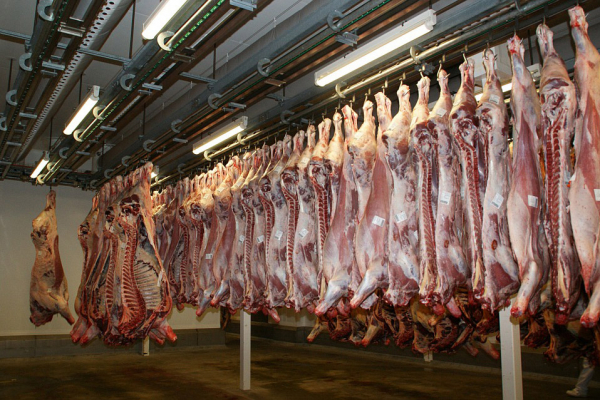
BY MTHANDAZO NYONI
ZIMBABWE’S abattoirs are struggling to secure slaughter stock, as farmers have turned to livestock to store value and hedge against inflation, according to a report by the Livestock and Meat Advisory Council (Lmac).
The country’s annual inflation slowed to 56% in July, the first time the figure fell below triple digit levels in two years, but remained one of Africa’s highest rates.
Lmac said in addition to hedging against inflation, communal farmers were holding on to their stock as pastures have been rich this year, following a good rainfall season.
“Field reports from members of the Zimbabwe Association of Abattoirs confirmed increasing difficulties in securing slaughter stock from the communal areas,” Lmac said in its first quarter report on Friday.
“Procurement costs have also risen, partly because of declining availability as farmers are under less selling pressure due to improved harvests and a shift in currency preferences to protect incomes values against any potential unexpected inflation and macroeconomic instability.”
Lmac’s data showed cumulative slaughters at 68 225 during the period, which was 2% below the last quarter of 2020.
Zimbabwe’s abattoirs derive their stock from commercial and semi commercial small-holder cattle breeders.
- Chamisa under fire over US$120K donation
- Mavhunga puts DeMbare into Chibuku quarterfinals
- Pension funds bet on Cabora Bassa oilfields
- Councils defy govt fire tender directive
Keep Reading
The small-holder sector, comprising communal farming areas, old resettlement and newly resettled A1 farming sector, accounts for 4,8 million cattle.
The commercial farming sector made up of small to large-scale commercial farmers, inclusive of A2 farm owners, has an estimated herd of 640 000 cattle.
The report said apart from low throughput from farmers, abattoirs had not escaped the effects of hard lockdowns implemented since April 2020 to contain the spread of Covid-19.
“Abattoirs continue to report increasing uncertainty in the business environment driven by Covid related restrictions, currency uncertainty, increased levies and taxes and the outbreaks of diseases like FMD (foot-and-mouth disease) and theileriosis being the major headwinds.
Business conditions are expected to remain vulnerable to macroeconomic and policy shocks for the rest of 2021,” said Lmac.
It said the lowest slaughter figure recorded was in January.
However, slaughters have since increased.
Slaughter figures for the months February and March were above both the two and five-year average monthly slaughters for February and March, respectively.
“The relatively high slaughters mask the difficulties that characterise the environment within which participants must operate where policies and laws can lack uniformity in application making business forecasting a haphazard affair,” the report noted.
The council said national distribution of carcass weights were falling, from 120kg to 271kg during the first quarter of 2020 to 165kg to 226kg during the review period.
It said the national weighted average carcass was between 184kg and 198kg.
The producer price of super grade increased the highest of all meat grades by 13% from $400 to $450 per kg during the period under review, while the producer price of economy grade decreased by 1% to $228 per kg.
During the corresponding period 2020, super and economy grades increased at higher rates.
The report said meat producer prices in United States dollars reflected some level of stabilisation during the period.
The month-on-month trajectory of wholesale prices in the first quarter revealed a general upward trajectory even as the number of slaughtered cattle increased.
“This may point to an increase in demand when considered in conjunction with the increase in aggregate slaughters,” said Lmac.










